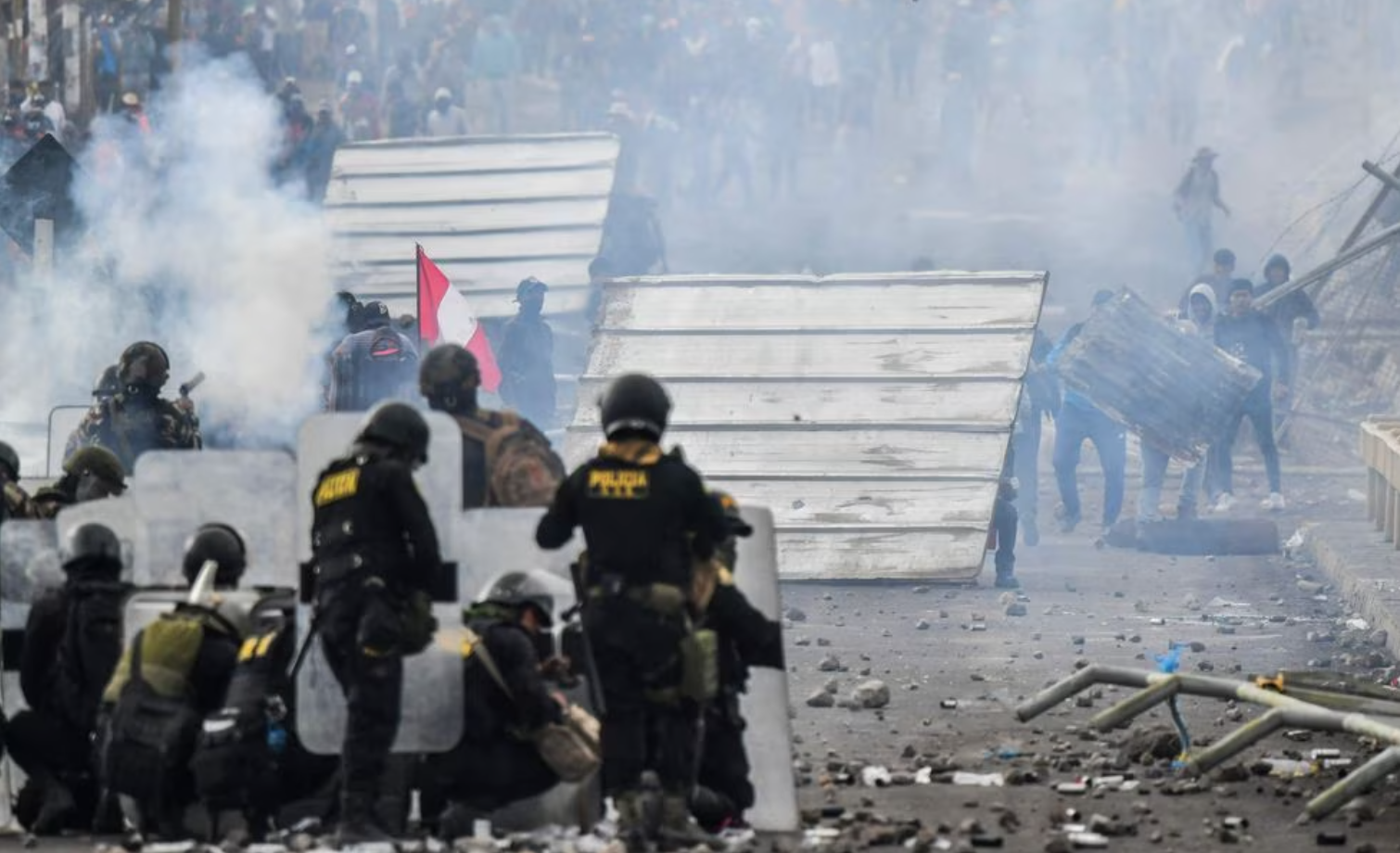Certain groups of the Peruvian far right seem not to care about the number of dead in the streets after the start of the protests on December 7, 2022. Unlike these, in the Chilean social turmoil of 2019, conservative parliamentary groups compromised within a month, after the violence demonstrated by the security forces. On November 15, 2019, after a death toll of 20 people, President Sebastián Piñera officially announced that a citizen consultation would be held. The decision was influenced by pressure from civil society, institutional bodies, and the productive apparatus itself. On that occasion, the objective was to abandon the violent strategy of the Government and police forces. In turn, Peruvian protests have been going on for two months now, resulting in more than 60 deaths, and yet the conservative forces have shown no interest in dialogue.
The approval of Peru’s early elections has been insufficient to calm tempers. The call for the “closing of the Congress” by the mobilized citizens, which is not a literal or openly anti-democratic issue to impose an authoritarian regime, seeks to put an end to the constant anti-democratic maneuvers of the Congress, which includes dismantling the electoral bodies, as well as ending the racist and violent discourse against the popular masses.
It seems that right-wing parliamentarians do not care much about appearing uncivilized before the international community, due to the flagrant violations of human rights. They are even willing to sacrifice democracy itself in order to save themselves. The demand for the resignation of Dina Boluarte is another demand of the protests, after the president’s betrayal: she used to be a defender of the constituent assembly, and now has turned to violently repressing the demonstrators.
If in the streets people are asking for a change in the Constitution, why not allow a consultation for the citizens to decide if they agree with this demand? The Chilean Constitution did not allow a consultation for its substitution; however, this prerogative was urgently approved by Congress. The legal problems can be overcome. Nevertheless, the Peruvian parliamentary right wing believes it is in an advantageous position after the fall of Pedro Castillo, but its intransigence may end up dragging it into a temporary banishment.
A substantial difference with the Chilean case is that President Dina Boluarte is in a position of weakness and, in response, she allied herself with the strategy of the right-wing parliamentarians, in a belligerent and unnecessary attitude. After all, she has little to lose, since she has no political party. But if she were to send a bill for a citizen consultation, she could gain a lot, since she would attenuate her authoritarian position to impose herself in the face of the violence of the right-wing groups in Congress. In this way, it would also succeed in calming the political atmosphere.
On the other hand, the challenge of the protests, most of which have been integrated by citizens coming from the farthest corners of the country and who are willing to establish a new political pact, is their intensity and permanence in time. These mobilizations have never been seen before and have been received with open declarations of racism by the institutions.
In response, the need to promote a Peruvian “great march” has been articulated, but, given the circumstances, it seems that this will not be enough. However, occupying public space, mainly in the capital, Lima, such as squares and avenues, is relevant and has recently translated into the strategic conquest of the different movements against the arrogance of Prime Minister Alberto Otárola, who had previously said that he would prevent the protests from entering the capital.
However, the greatest fear of the Peruvian right wing is not the discomfort of the protests as they pass through the streets of the capital, but the risk that they will suffocate the economic circuit of the capital and the country. If the blockade of Lima’s main airport, the port of Callao, as well as the different road entrances in their different sections begin to take effect, the costs of repression will be much higher than those of tolerance.
*Translated from Spanish by Janaína Ruviaro da Silva












